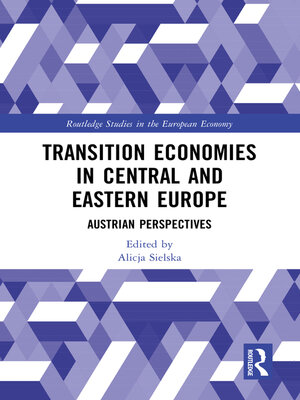Transition Economies in Central and Eastern Europe
ebook ∣ Austrian Perspectives · Routledge Studies in the European Economy
By Alicja Sielska

Sign up to save your library
With an OverDrive account, you can save your favorite libraries for at-a-glance information about availability. Find out more about OverDrive accounts.
Find this title in Libby, the library reading app by OverDrive.



Search for a digital library with this title
Title found at these libraries:
| Loading... |
The theory of interventionism of the Austrian School of Economics explains the successes and failures of the transformation processes in Central and Eastern European countries and offers a deep insight into contemporary economic phenomena. Three decades have passed since the collapse of communism that precipitated the economic transformation of these countries. This book describes the Austrian view of socialism and in such a context explains the transformational success of the countries of Central and Eastern Europe. Moreover, it shows that the theory of interventionism has not lost its relevance, and the theory itself—along with its modifications—may be used to explain current economic events.
The book is divided into four sections. The first part presents the Austrian perspective on socialism; the second discusses a new approach to the Austrian theory of interventionism, suggesting that the theory should be revised and that its scope should be extended beyond the transformation of the 1990s into the realm of contemporary economic reality; the third part is oriented towards pragmatic considerations, whereby the authors employ the Austrian perspective to analyze specific factors that, according to their view, had an impact on the transformational success of post-communist countries; while the final part is ideological and philosophical in character. Here the authors search for certain principia that govern broadly understood social and economic transformations.
The book is addressed to those interested in the Austrian School of Economics and the political transformation of the 1990s, as well as those who wish to understand contemporary economic trends.






